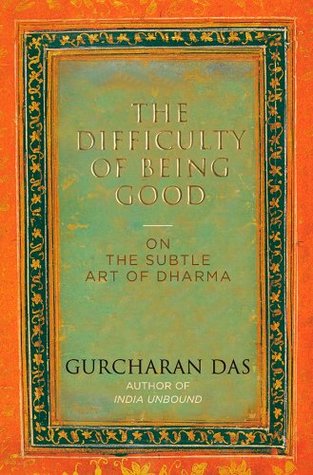More on this book
Community
Kindle Notes & Highlights
The Mahabharata is obsessed with the elusive notion of dharma—in essence, doing the right thing.
If you believe in God, Pascal had said, and He turns out to exist, then you have obviously made a good decision; however, if He does not exist, and you still believe in Him, you haven’t lost anything; but if you don’t believe in Him and he does exist, then you are in serious trouble.
‘nature does not give a man virtue; the process of becoming a good man is an art’.
dharma may be ‘subtle’, and there are limits to what moral education can achieve, the epic leaves one with the confidence that it is in our nature also to be good.
‘The man who envies other people for their conduct, beauty, courage, family lineage, happiness, success and favour has an eternal sickness.’
Consequences of one’s acts do matter, but so do motives in trying to understand why we behave morally.
The attraction of Consequentialism is its simplicity. I can quickly tell if I am being good by examining the consequences of my act. Everyone is equal in the equation, whether a servant or a master.
If people do not trust each other, the social order will collapse. Our moral rules, such as ahimsa, ‘not hurting others’, or satya, ‘telling the truth’, are, in fact, rules for cooperation, without which we would ‘sink into a bottomless darkness’, he says.
‘Your work will succeed as long as you don’t care who gets the credit.’


